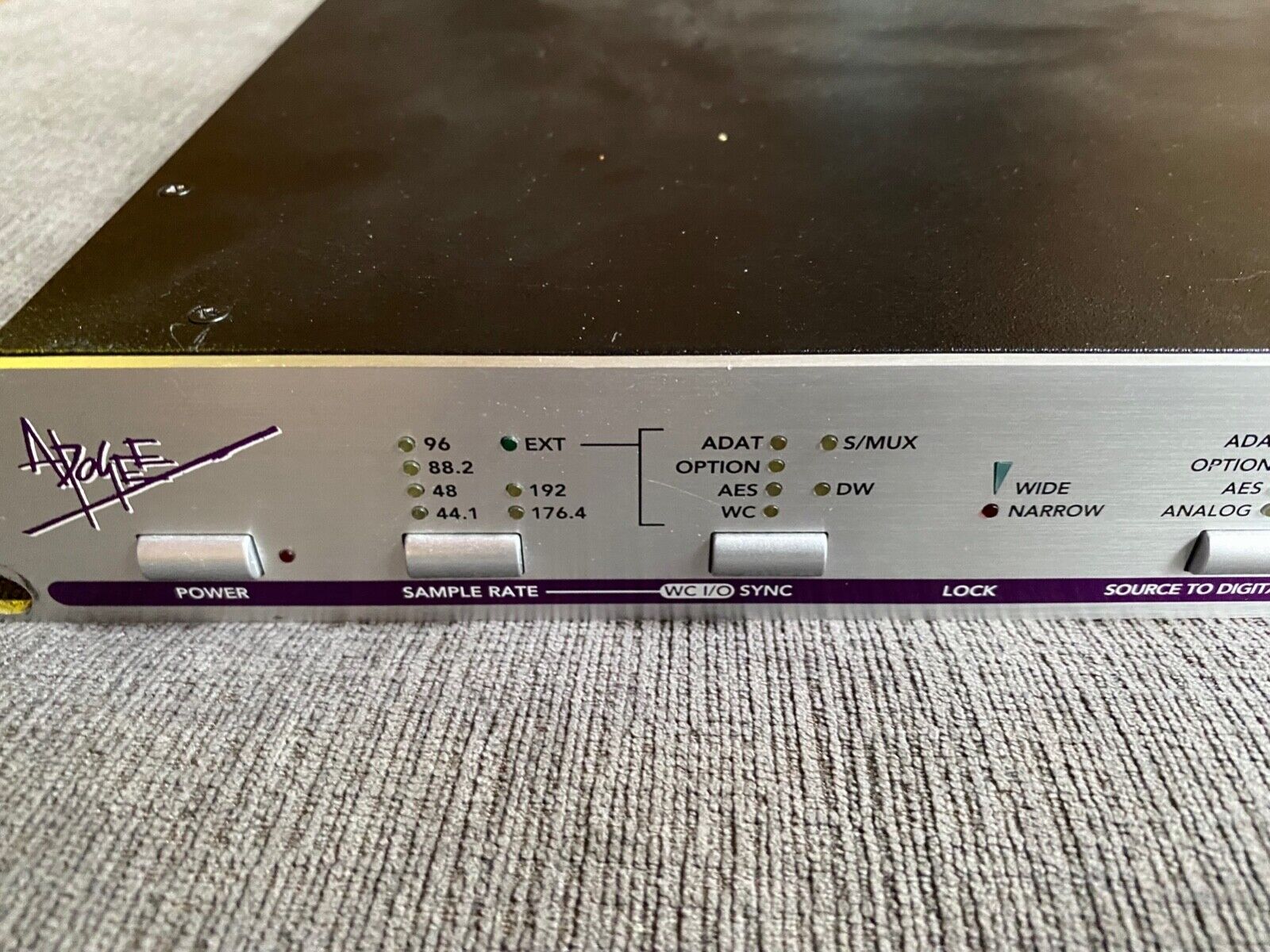Home>Events & Info>Podcast>What Should My Podcast Be About


Podcast
What Should My Podcast Be About
Modified: January 22, 2024
Discover your perfect podcast topic with our helpful guide! Whether you're a podcasting pro or just starting out, find inspiration and ideas to create engaging content on any subject.
(Many of the links in this article redirect to a specific reviewed product. Your purchase of these products through affiliate links helps to generate commission for AudioLover.com, at no extra cost. Learn more)
Table of Contents
- Introduction
- Finding Your Passion
- Identifying Your Target Audience
- Researching Popular Podcast Topics
- Brainstorming Unique Ideas
- Assessing Your Expertise
- Considering Trends and Current Events
- Evaluating Your Resources and Constraints
- Defining the Purpose and Goal of Your Podcast
- Conducting a SWOT Analysis
- Combining Multiple Topics or Formats
- Incorporating Guest Interviews or Collaborations
- Choosing the Right Tone and Style
- Refining Your Podcast Concept
- Conclusion
Introduction
Podcasting has become increasingly popular in recent years, and for good reason. It is a powerful medium that allows individuals and organizations to share their thoughts, expertise, and creativity with a global audience. Whether you’re an aspiring podcaster or already have experience in the field, one question that often arises is, “What should my podcast be about?”
Choosing the right topic for your podcast is crucial for its success. It not only sets the tone and direction for your episodes but also determines your target audience and the overall appeal of your show. To ensure that your podcast resonates with listeners and stands out amongst the thousands of other podcasts available, it is important to approach this question thoughtfully and strategically.
In this article, we will explore various factors to consider when deciding on the topic of your podcast. We’ll discuss how to identify your passion, research popular podcast topics, assess your expertise, consider trends and current events, evaluate your resources and constraints, define the purpose and goal of your podcast, and conduct a SWOT analysis. Additionally, we’ll touch on incorporating guest interviews or collaborations, choosing the right tone and style, and refining your podcast concept.
By the end of this article, you’ll have a clearer understanding of what your podcast should be about, and you’ll be ready to embark on this exciting journey of sharing your voice with the world.
Finding Your Passion
When it comes to choosing the topic of your podcast, it’s important to start by identifying your passion. What is it that truly excites you? What subject matter do you find yourself constantly researching, discussing, or wanting to learn more about? Your passion will be the driving force behind your podcast and will sustain your interest and dedication to producing episodes over time.
Begin by reflecting on your interests, hobbies, and areas of expertise. Consider the things that bring you joy and ignite your enthusiasm. Think about the topics that you could talk about for hours without getting bored. This could be anything from sports, technology, and personal development to cooking, travel, and pop culture. The key is to choose a topic that genuinely excites you and that you have a deep knowledge or desire to explore further.
Don’t get caught up in trying to choose a topic based solely on its popularity or perceived market demand. While it’s important to consider your potential audience (which we’ll discuss later), ultimately, your passion will shine through in your podcast episodes and will attract listeners who are also passionate about the same topic. Authenticity is key.
If you find that you have multiple interests that you’re equally passionate about, don’t be afraid to explore combining them into a unique podcast concept. For example, if you’re passionate about both fitness and entrepreneurship, you can create a podcast that focuses on the intersection of health and business, providing valuable insights for fitness enthusiasts looking to start their own fitness-related businesses. By blending your passions, you can carve out a niche for yourself and attract a specific audience.
Remember, your passion will not only fuel your own enthusiasm, but it will also make your podcast more engaging and relatable to your audience. Listeners can sense genuine passion and will be more likely to connect with you and your content on a deeper level.
Identifying Your Target Audience
Once you have determined your passion and chosen a topic for your podcast, the next step is to identify your target audience. Understanding who your podcast is for will help you tailor your content, style, and approach to resonate with your intended listeners.
Start by thinking about the demographics of your ideal audience. Consider factors such as age, gender, location, occupation, and interests. This will help you create a clear profile of your target audience and enable you to cater to their specific needs and preferences.
Additionally, consider the psychographics of your audience. This includes their attitudes, values, beliefs, and motivations. Understanding the mindset and emotional needs of your audience will assist you in crafting content that speaks directly to them and addresses their unique concerns or aspirations.
Researching existing podcasts within your chosen niche can also provide valuable insights into the type of audience that is already interested in the topic. Look at reviews, comments, and listener feedback to gain a deeper understanding of what resonates with them and what they are looking for in a podcast.
Once you have a clearer picture of your target audience, you can tailor your episodes to meet their needs. Consider the language, tone, and level of expertise that will resonate with your audience. Are they beginners who require a more introductory approach, or are they seasoned enthusiasts who crave in-depth discussions?
Remember that you don’t have to appeal to everyone. In fact, trying to cater to a broad audience may dilute your message and make it harder to connect with your core listeners. By niching down and focusing on a specific audience, you can build a loyal following and establish yourself as an authority in your chosen niche.
Once you have a good understanding of your target audience, you can use this information to guide your content creation process, develop marketing strategies, and engage with your listeners on social media platforms. Remember, your podcast is not just about talking; it’s about building a community and forging meaningful connections with your audience.
Researching Popular Podcast Topics
Researching popular podcast topics can provide valuable insights and inspiration for your own podcast. It helps you understand the trends and interests of listeners, allowing you to identify gaps in the market and find unique angles to approach your chosen topic.
Start by exploring popular podcast directories and platforms such as Apple Podcasts, Spotify, and Stitcher. Look for podcasts within your genre or niche and pay attention to their rankings, reviews, and listener engagement. Take note of the topics that consistently perform well and the ones that generate a lot of buzz.
In addition to looking at the top podcasts, don’t underestimate the power of niche podcasts. These are podcasts that cater to a specific, often underserved, audience within your chosen topic. Niche podcasts can provide a wealth of insights and ideas that may not be readily apparent from mainstream podcasts.
Take the time to analyze the content of these popular and niche podcasts. Look for recurring themes, common questions, and areas that have not been fully explored. This will help you identify potential gaps in the market that you can fill with your own unique perspective.
Pay attention to listener feedback and engagement. Look for comments, reviews, and social media discussions related to these podcasts. This will give you a better understanding of what resonates with listeners and what they are looking for in a podcast.
Don’t forget to leverage keyword research tools to discover popular search terms and trending topics related to your podcast’s subject matter. Tools like Google Trends, Ubersuggest, and SEMrush can provide insights into the popularity and search volume of specific keywords.
While it’s important to be aware of popular topics and trends, it’s equally important to bring your own unique perspective and voice to the table. Look for ways to differentiate yourself from other podcasts in your niche. Consider how you can offer a fresh perspective, provide new insights, or deliver your content in a unique and engaging format.
Remember, researching popular podcast topics is not about copying what’s already out there. Instead, it’s about gaining a deeper understanding of the landscape and finding your own niche within the broader conversation. By staying informed and aware of what’s popular, you can position your podcast for success while still staying true to your own passions and interests.
Brainstorming Unique Ideas
When it comes to creating a successful podcast, having unique and compelling ideas is essential. Brainstorming is a creative process that can help you generate fresh and innovative ideas for your podcast episodes. Here are some strategies to get your creative juices flowing:
1. Mind Mapping: Start by writing down your main topic in the center of a blank page and then branch out with related subtopics and ideas. This visual representation can help you explore different angles and connections that you may not have considered before.
2. Keyword Expansion: Take your main topic and brainstorm related keywords and phrases. This can give you new ideas and directions to explore. For example, if your podcast is about fitness, related keywords could be nutrition, workouts, motivation, and lifestyle habits.
3. Problem-Solution Approach: Identify common problems or challenges that your target audience faces within your topic area. Brainstorm episode ideas that address these issues and provide practical solutions or actionable advice.
4. Guest Collaborations: Consider inviting experts, influencers, or interesting personalities as guests on your podcast. Brainstorm a list of potential guests who can contribute valuable insights and bring a fresh perspective to your episodes.
5. Storytelling: Tap into the power of storytelling by brainstorming narrative-driven episodes or themed series. Explore personal experiences, success stories, or even fictional narratives that relate to your podcast’s theme.
6. Unique Formats: Think outside the box when it comes to the format of your episodes. Instead of the traditional interview or monologue-style, consider incorporating elements like storytelling, roundtable discussions, or audio documentaries.
7. Audience Interaction: Engage your audience by brainstorming ideas for interactive episodes, such as Q&A sessions, listener story features, or live call-in episodes. This can create a sense of community and make your podcast more interactive and engaging.
Remember, the key to brainstorming is to let your ideas flow freely without judgment. Write down all your ideas, no matter how outrageous or unconventional they may seem at first. You never know which idea may turn into a gem with some further refinement.
Once you have a list of ideas, review and refine them. Consider the feasibility, relevance, and potential interest of each idea. Narrow down your list to the most compelling and unique ideas that align with your podcast’s goals and audience.
Brainstorming is an ongoing process, so don’t be afraid to revisit and expand your list of ideas as your podcast evolves. Stay open to new ideas and seek inspiration from various sources such as books, articles, conversations, and everyday experiences.
Ultimately, the goal is to create a podcast that is not only informative and entertaining but also stands out from the crowd and provides a unique value proposition to your listeners.
Assessing Your Expertise
When choosing the topic of your podcast, it’s important to assess your expertise and knowledge in that particular area. Your level of expertise will determine your credibility and ability to provide valuable insights to your audience.
Start by evaluating your own background, education, and experience in the chosen topic. What relevant knowledge or skills do you possess? Have you worked in the industry or gained expertise through personal passion and research? Understanding your areas of expertise will help you ensure that you have the necessary foundation to provide informative and engaging content to your listeners.
It’s also important to consider your willingness and ability to continue learning and growing within the topic. Are you passionate about staying up-to-date with the latest developments and trends? Can you dedicate the time and effort required to continually expand your knowledge and skills? Being a lifelong learner is crucial as it allows you to provide fresh and relevant content to your audience.
If you find that you don’t have extensive expertise in your chosen topic, that doesn’t necessarily mean you should abandon the idea. Consider whether you are willing to invest the time and effort into becoming an authority in the field. This could involve conducting in-depth research, interviewing experts, seeking mentorship, or enrolling in courses to enhance your knowledge.
Another important aspect to consider is your ability to communicate effectively about the topic. Can you convey complex ideas in a clear and understandable manner? Are you comfortable speaking and presenting information in an engaging way? Being able to communicate your expertise effectively is essential for connecting with your audience and delivering value through your podcast episodes.
However, don’t let a lack of expertise deter you from pursuing a particular topic. Sometimes, the journey of learning and sharing your growth and exploration with your audience can be just as valuable and engaging. As long as you approach the topic with curiosity, authenticity, and a willingness to continuously learn, your podcast can still be impactful and resonate with your listeners.
If you find that your expertise is limited in a specific area, consider collaborating with guests or co-hosts who have complementary knowledge and experience. This not only enhances the quality of your content but also provides different perspectives and insights for your audience.
Remember, assessing your expertise is an important step in choosing the topic of your podcast. It ensures that you have the knowledge, passion, and ability to provide valuable and credible content to your audience. Whether you have extensive expertise or are embarking on a journey to become an expert, your enthusiasm and commitment to learning will shine through in your podcast and resonate with your listeners.
Considering Trends and Current Events
When selecting a topic for your podcast, it’s essential to consider trends and current events. Staying up-to-date with the latest happenings and understanding the pulse of your target audience can help you create timely and relevant content. Here are some points to keep in mind:
1. Stay Relevant: Consider the current trends and popular topics within your chosen niche. What are people talking about? What new developments or innovations are shaping the industry? By aligning your podcast with current trends, you can attract a larger audience who are actively seeking information and discussions on these topics.
2. Capitalize on Current Events: Events and news stories often generate significant interest and create opportunities for podcasters to provide unique insights or commentary. Keep an eye on news outlets, social media platforms, and industry-specific publications to identify relevant events or stories that you can incorporate into your podcast episodes.
3. Stand Out with Unique Perspectives: While it’s important to be aware of current trends, find ways to bring your unique perspective and voice to the conversation. Look for angles or insights that others may have overlooked. By offering a fresh perspective on trending topics, you can attract listeners who are looking for alternative viewpoints and deepen the conversation.
4. Balance Evergreen and Timely Content: Consider creating a mix of evergreen content and episodes that focus on current events. Evergreen content is timeless and relevant regardless of when it is consumed, while episodes that discuss current events have a more immediate impact. Striking a balance between the two can help you attract a diverse range of listeners and ensure that your podcast remains relevant in the long run.
5. Use Social Listening: Monitor social media platforms and online forums to gauge what your target audience is talking about. Pay attention to conversations, trending hashtags, and common questions or challenges that arise. This will help you understand their interests and tailor your content accordingly.
6. Engage in Conversations: Being aware of current trends and events allows you to actively participate in relevant conversations both on your podcast and on social media. Engage with your audience, ask for their thoughts and feedback, and invite them to share their own perspectives or experiences. This creates a sense of community and keeps your podcast connected to the broader conversation.
While it’s important to consider trends and current events, be mindful of your podcast’s focus and niche. Stay true to your core topic and ensure that the trend or current event relates to your overall content strategy. Avoid being swayed by every passing fad, and instead, choose topics that genuinely resonate with your audience and align with your podcast’s mission and values.
By considering trends and current events, you can make your podcast more timely, relevant, and engaging. It allows you to tap into the collective interest and conversation happening within your niche, positioning your podcast as a go-to resource for the latest insights and discussions.
Evaluating Your Resources and Constraints
Before diving into your podcast topic, it’s important to evaluate the resources and constraints you have. Understanding what you have available will help you set realistic expectations and make informed decisions about your podcast’s direction. Here are some key considerations:
1. Time: Assess how much time you can dedicate to your podcast. Creating quality content takes time, from researching and scripting episodes to recording and editing. Be honest about how much time you can commit to ensure consistency in delivering episodes to your audience. Determine if you have the bandwidth to produce a weekly, bi-weekly, or monthly podcast.
2. Equipment and Technology: Evaluate the resources you have in terms of podcasting equipment, software, and technology. Do you have a suitable microphone, headphones, and recording setup? Consider investing in quality equipment to enhance the overall production value of your podcast. Assess your technical skills and comfort level with editing software as well.
3. Budget: Determine your budget for podcasting. Consider expenses such as hosting services, equipment upgrades, marketing, and graphic design. You may need to allocate funds for advertising or outsourcing certain tasks such as editing or graphic design if you lack the necessary skills or time.
4. Expertise and Skills: Assess your existing expertise and skills related to podcasting. Do you have experience in audio editing, storytelling, or interviewing? Recognize your strengths and areas where you may need to improve. This will help you identify any gaps that need to be addressed and whether additional training or collaborations are necessary.
5. Support System: Consider the support you have from friends, family, or peers who can assist with various aspects of podcast production. They could help with guest booking, social media management, or providing feedback on your episodes. Having a support system can alleviate some of the workload and help you maintain consistency with your podcast.
6. Physical Space: Evaluate the physical space you have available for recording. Assess factors such as background noise, acoustics, and privacy. Create a dedicated area for podcasting, ensuring it is conducive to producing high-quality audio and minimizing interruptions.
7. Legal Considerations: Understand any legal considerations or constraints that may impact your podcast topic or content. Research copyright laws, trademark restrictions, and any necessary permissions or licenses required for using specific content or music in your podcast. Compliance with regulations and ethical practices is crucial for the long-term success of your podcast.
By carefully evaluating your resources and constraints, you can set realistic expectations and make informed decisions about the scope and direction of your podcast. Knowing your limitations upfront allows you to plan effectively, manage your time and budget, and ensure the quality and consistency of your episodes.
Remember, as you progress in your podcasting journey, your resources may change. You may acquire new equipment, expand your skills, or allocate more time. Continuously evaluate and reassess to optimize your podcasting experience and deliver the best content to your audience.
Defining the Purpose and Goal of Your Podcast
Defining the purpose and goal of your podcast is crucial as it serves as the guiding framework for your content creation and helps you stay focused and consistent. It clarifies what you aim to achieve and the value you want to provide to your listeners. Here are some key considerations:
1. Identify Your Why: Start by asking yourself why you want to create a podcast. What is your ultimate purpose? Is it to educate, entertain, inspire, or inform? Understanding your motivation and the underlying passion behind your podcast will drive your content and resonate with your audience.
2. Determine Your Target Audience: Who are you creating the podcast for? Define your target audience based on demographics, interests, and goals. This will help you tailor your content to their specific needs and preferences, establishing a connection and building a loyal listener base.
3. Craft Your Unique Value Proposition: Determine what makes your podcast unique and differentiates it from others in your niche. Consider what value you can offer that sets you apart. This could be your expertise, storytelling style, guest lineup, or a distinct format. Communicate this unique value proposition to attract and retain listeners.
4. Outline Your Content Strategy: Develop a clear content strategy that aligns with your purpose and goals. Consider the format, structure, and themes of your episodes. Will you have solo episodes, interviews, or panel discussions? Will you focus on case studies, practical tips, or deep dives into specific topics? Plan ahead to ensure consistency and a cohesive flow in your episodes.
5. Set Measurable Goals: Establish measurable goals to track your progress and evaluate the success of your podcast. These goals could include the number of downloads, listener engagement, guest collaborations, or even monetization targets if applicable. Setting goals provides direction and a measurable benchmark for your podcast’s growth.
6. Adaptability and Evolution: Keep in mind that the purpose and goals of your podcast may evolve over time. Stay open to feedback, listen to your audience, and be willing to adapt and refine your approach as needed. Embrace the opportunity to learn and grow alongside your podcast.
7. Align Personal and Professional Goals: Consider how your podcast aligns with your personal and professional goals. Will it enhance your personal brand, provide networking opportunities, or complement your expertise in a certain field? Ensure that your podcast aligns with your broader aspirations and helps you achieve your desired outcomes.
Clearly defining the purpose and goal of your podcast provides clarity and focus throughout your podcasting journey. It shapes your content, attracts the right audience, and helps you measure your success. Remember, your purpose and goals should inspire and motivate you while resonating with your listeners to create a meaningful and impactful podcast experience.
Conducting a SWOT Analysis
A SWOT analysis is a valuable tool that can provide insights into the strengths, weaknesses, opportunities, and threats of your podcast. It helps you understand your podcast’s current position and identify areas for improvement and growth. Here’s how to conduct a SWOT analysis:
Strengths:
Identify the strengths of your podcast. What advantages do you have over other podcasts in your niche? Consider your unique expertise, storytelling skills, production quality, guest lineup, or community engagement. These strengths will help you differentiate yourself and build a loyal listener base.
Weaknesses:
Recognize the weaknesses or areas where your podcast may need improvement. Be honest in assessing the quality of your content, technical skills, or marketing efforts. Identify any limitations that may hinder your podcast’s growth or impact. This awareness will help you prioritize areas for development.
Opportunities:
Explore the opportunities available for your podcast’s growth and expansion. Consider untapped niches, emerging trends, or new platforms that can help you reach a wider audience. Research potential collaborations, sponsorships, or marketing avenues that align with your podcast’s target audience. Seize these opportunities to increase your podcast’s reach and influence.
Threats:
Identify the threats or challenges that your podcast may face. This could include competition in your niche, changes in technology, or shifts in audience preferences. Analyze external factors that may impact your podcast and strategize ways to mitigate these risks. By being proactive, you can adapt and navigate potential threats effectively.
Once you have identified the strengths, weaknesses, opportunities, and threats, consider how you can leverage your strengths to capitalize on the opportunities and address the weaknesses or threats. Maximize your strengths, minimize weaknesses, seize opportunities, and mitigate threats to optimize the success of your podcast.
Keep in mind that a SWOT analysis is an iterative process. Regularly revisit and update your analysis as your podcast evolves. Adapt to changes in the industry and refine your strategy accordingly.
Additionally, consider seeking feedback from your audience, colleagues, or peers in the podcasting community. Their perspectives can provide valuable insights and help you uncover blind spots you may have missed in your analysis.
A SWOT analysis provides a comprehensive understanding of your podcast’s current position and the external factors that may impact its success. By conducting a thorough analysis and taking strategic actions based on your findings, you can position your podcast for sustainable growth and create a podcast that resonates with your audience.
Combining Multiple Topics or Formats
Combining multiple topics or formats in your podcast can create a unique and engaging experience for your listeners. It allows you to explore various interests, cater to a broader audience, and provide a fresh take on familiar subjects. Here’s how you can effectively incorporate multiple topics or formats into your podcast:
1. Identify Complementary Topics:
Consider topics that naturally align or have overlap with your main focus. Look for connections or intersections that can create interesting discussions or new insights. For example, if your podcast is about personal development, you can explore topics like mindfulness, productivity, and goal-setting as they all contribute to holistic personal growth.
2. Integrate Segments or Series:
Rather than solely focusing on one topic for the entire podcast, incorporate segments or series that cover different subjects. This adds variety and keeps your episodes dynamic. For instance, you can have a “Spotlight Series” where you delve into specific industries, trends, or inspiring individuals within your niche.
3. Combine Different Formats:
Experiment with different podcast formats to keep your content engaging. This can include incorporating interviews, panel discussions, solo episodes, listener Q&A sessions, or even storytelling episodes. The combination of formats adds depth and variety to your podcast, suiting different listening preferences.
4. Cross-Promote with Guest Experts:
Invite guest experts from various fields to share their insights and expertise. This not only expands the range of topics covered in your podcast but also helps you tap into their audience and cross-promote your episodes. It provides fresh perspectives and attracts listeners who may not have discovered your podcast otherwise.
5. Maintain Cohesion:
While incorporating multiple topics or formats, it’s crucial to maintain cohesion and ensure that the episodes flow smoothly. Find common threads or themes that connect your episodes and create a cohesive narrative. Clearly communicate to your audience how the different topics or formats relate to your overall podcast’s mission and purpose.
6. Seek Audience Feedback:
Engage with your audience to gauge their preferences and interests. Encourage them to provide feedback and suggestions for topics or formats they would like to hear. This helps you tailor your content to their needs and increase listener engagement.
Remember, the key to effectively combining multiple topics or formats is to strike a balance. Ensure that there is a coherent thread tying everything together while also providing diversity and novelty for your listeners. Embrace experimentation and be open to evolving your approach based on audience feedback and your own creative instincts.
By incorporating multiple topics or formats, you can attract a wider range of listeners and keep your episodes fresh and exciting. It allows you to explore different interests, showcase your versatility as a podcaster, and foster a deeper connection with your audience.
Incorporating Guest Interviews or Collaborations
Incorporating guest interviews or collaborations into your podcast can bring fresh perspectives, varied expertise, and increased audience engagement. It adds richness and diversity to your content, helping you deliver valuable insights and create meaningful connections with your listeners. Here’s how you can effectively incorporate guest interviews or collaborations into your podcast:
1. Identify Relevant Guests:
Consider experts, influencers, or individuals with unique perspectives who align with your podcast’s topic and target audience. Look for guests who can provide valuable insights, share compelling stories, or offer a fresh take on your subject matter. Brainstorm a list of potential guests and reach out to them with a compelling pitch.
2. Plan Engaging Interviews:
Prepare thoughtful and well-researched interview questions that allow your guests to share their expertise and experiences. Structure the interview in a way that flows smoothly and keeps the conversation engaging. Strike a balance between allowing your guest to speak and interjecting with your own insights or follow-up questions.
3. Showcase Collaborative Conversations:
Collaborative conversations can take many forms, such as panel discussions, roundtable debates, or co-hosted episodes. Collaborating with other podcasters or industry experts allows you to explore different perspectives, foster engaging discussions, and tap into each other’s audiences. These collaborations can lead to cross-promotion and increased visibility for your podcast.
4. Research and Preparation:
Prior to the interview or collaboration, conduct thorough research on your guest or co-host’s background, work, and previous interviews. This will enable you to ask thoughtful and relevant questions and create a dynamic conversation. Showcasing a genuine interest in your guest’s expertise or experiences will make for a more engaging and valuable episode.
5. Leverage Networking Opportunities:
Attend industry events, conferences, or online communities to network with potential guests or collaborators. Engage in conversations, ask questions, and build relationships with individuals who resonate with your podcast’s theme. Networking provides opportunities for future collaborations and connections that can enhance the quality and reach of your podcast.
6. Be a Host or Co-host that Listeners Love:
Ensure that you provide a welcoming and comfortable environment for your guests or collaborators. Be a good listener, make them feel heard, and create a space where they can openly share their knowledge and experiences. Being a gracious and attentive host or co-host fosters positive interactions and encourages guests to promote your podcast to their own networks.
By incorporating guest interviews or collaborations into your podcast, you bring fresh perspectives, create engaging conversations, and attract new listeners. It allows you to tap into the expertise and networks of others while providing valuable content and expanding your reach within your niche.
Choosing the Right Tone and Style
Choosing the right tone and style for your podcast is essential as it sets the overall mood, atmosphere, and personality of your show. It determines how your content is perceived by your audience and helps forge a strong connection with your listeners. Here are some considerations when selecting the tone and style for your podcast:
1. Know Your Audience:
Understand your target audience and their preferences. Consider the tone and style that would resonate with them. Are they looking for an informal, conversational tone, or do they prefer a more professional and authoritative approach? Tailor your tone and style to match the expectations and preferences of your specific audience.
2. Reflect Your Brand and Content:
Ensure that your tone and style align with the content, theme, and purpose of your podcast. If your podcast focuses on serious subjects or informative discussions, a more formal tone may be appropriate. Conversely, for podcasts that emphasize humor, storytelling, or casual conversations, a more relaxed and lighthearted tone might be more suitable. Strive for consistency between your brand, content, and the tone you convey.
3. Be Authentic:
Choose a tone and style that feels natural to you and reflects your genuine personality. Authenticity creates a deeper connection with your audience as they can sense your sincerity. Let your true self shine through, whether that means being upbeat and energetic, calm and introspective, or somewhere in between.
4. Consider the Topic and Context:
The tone and style should be appropriate for the subject matter and the context in which you’re discussing it. For example, if your podcast tackles sensitive or serious topics, a respectful and empathetic tone is crucial. On the other hand, if your podcast covers entertainment or pop culture, a more light-hearted and conversational tone might be fitting.
5. Balance Professionalism with Approachability:
Strive to strike a balance between professionalism and approachability. Even if your tone is relaxed and conversational, maintaining a level of professionalism ensures credibility. Communicate with clarity, use proper grammar, and maintain a level of respect for your audience and guests.
6. Be Consistent:
Consistency is key when it comes to tone and style. Establishing a consistent tone throughout your episodes fosters familiarity and builds a sense of trust with your audience. However, allow some room for growth and evolution as your podcast progresses, but ensure that any changes to your tone and style are intentional and communicated to your audience.
7. Feedback and Adaptation:
Pay attention to feedback from your listeners. Encourage them to express their thoughts on your tone and style. Adjust and adapt as necessary based on the feedback received. Continuously strive to improve and meet the expectations of your audience.
Choosing the right tone and style sets the stage for your podcast’s overall vibe. It creates an emotional connection with your audience and strengthens your brand identity. Whether it’s informative, humorous, inspiring, or thought-provoking, the tone and style you choose should resonate with your audience and reflect the essence of your podcast.
Refining Your Podcast Concept
Once you have established the initial direction of your podcast, it’s important to continuously refine and evolve your concept to ensure its relevance, resonance, and growth. Refining your podcast concept involves assessing and fine-tuning various aspects of your show. Here’s how you can effectively refine your podcast concept:
1. Review and Reflect:
Periodically review your episodes and assess what’s working and what can be improved. Listen to your own content with a critical ear and consider how you can enhance the quality, flow, and overall impact of your episodes. Reflect on the feedback from your listeners to identify patterns or areas for refinement.
2. Evaluate Audience Engagement:
Pay attention to listener engagement metrics such as downloads, listens, reviews, and social media interactions. Analyze which episodes or topics generate the most interest and engagement from your audience. This feedback will guide you in understanding what resonates and help you adjust your concept accordingly.
3. Seek Feedback:
Actively seek feedback from your listeners through surveys, social media polls, or direct communication. Provide opportunities for them to share their thoughts, suggestions, and ideas for improvement. Engage in conversations with your audience to gain valuable insights and ensure that your podcast aligns with their needs and expectations.
4. Refine Content Quality and Structure:
Evaluate the quality of your content, including the depth of research, organization, storytelling, and production value. Strive to enhance the overall quality of your episodes by investing in improving your skills, upgrading your equipment, or seeking professional support such as editing services. Continually refine your episode structure to create a seamless and engaging flow for your listeners.
5. Adjust Episode Length and Frequency:
Consider the length and frequency of your podcast episodes. Assess whether your current episode duration is suitable for your content and audience. Be mindful of the time constraints and attention span of your listeners. Similarly, evaluate whether your current release schedule aligns with the demands of your podcast and your ability to consistently deliver quality episodes.
6. Stay Current and Relevant:
Continuously stay informed about new developments, trends, and changes within your podcast’s niche. Be adaptable and willing to adjust your concept to remain relevant and provide up-to-date information to your audience. Incorporating timely and relevant topics ensures that your podcast stays fresh and maintains its relevance in a rapidly changing landscape.
7. Embrace Evolution:
Don’t be afraid to evolve and adapt your podcast concept. As you gain insights, feedback, and experience, you may find new directions or niche areas that align better with your goals and audience. Embrace these changes and be open to exploring new opportunities for growth and expansion.
Remember that refining your podcast concept is an ongoing process. Regularly reassess and make adjustments as needed to ensure that your podcast continues to resonate with your audience and provide value. By continuously refining your concept, you can create a podcast that grows, engages, and remains relevant in the ever-evolving podcasting landscape.
Conclusion
Choosing the right topic for your podcast is a crucial step in creating a successful and engaging show. By following the steps outlined in this article, you can navigate the process of determining your podcast’s direction with confidence.
Start by identifying your passion and interests, allowing them to guide you towards a topic that genuinely excites you. Next, consider your target audience and conduct thorough research on popular podcast topics to identify trends and potential gaps in the market.
Brainstorm unique ideas and assess your expertise to ensure that you can provide valuable insights and create high-quality content. Consider current events and trends to stay relevant and tap into conversations happening within your niche.
Evaluate your resources and constraints to set realistic expectations for your podcast. Define the purpose and goals of your podcast, conduct a SWOT analysis, and explore the possibilities of combining multiple topics or formats to create a unique and engaging show.
Incorporate guest interviews or collaborations to bring fresh perspectives and expand your reach. Choose the right tone and style that resonates with your audience and reflects your brand and content. Continuously refine your podcast concept, seeking feedback and making adjustments to improve the quality and relevance of your episodes.
In conclusion, finding the right topic for your podcast requires careful consideration and planning. By following these steps, you can create a compelling podcast that stands out, resonates with your audience, and leaves a lasting impact. So, take the leap, unleash your creativity, and let your voice be heard in the exciting world of podcasting.











